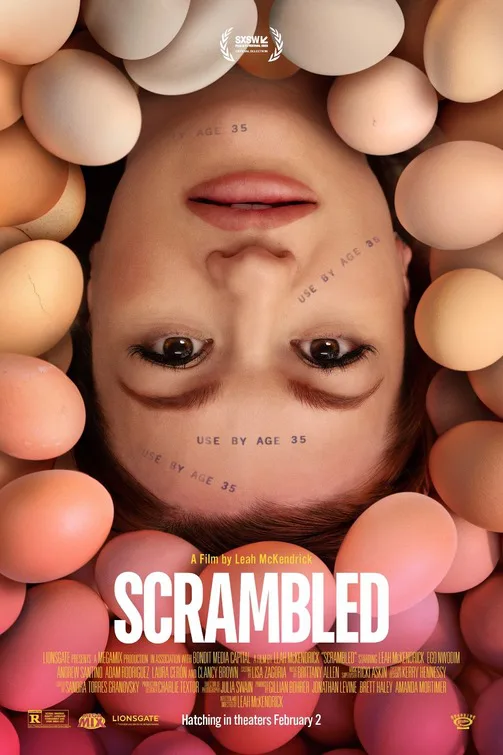There are secrets of a woman’s life that we hardly ever admit to each other. But writer/director/star Leah McKendrick is fearless enough to put some of them on screen. Here is one: sometimes, when women are having a severe crisis, even though we know we will regret it, we, well — even now I hate to admit it -– we cut our hair to try bangs.
McKendrick also shares one of the biggest secrets of them all: we all worry that everyone else has it figured out and somehow we missed that day at making life work out school. As McKendrick’s character, Nellie, says in the film, “You thought it was a dance party, but it’s one long game of musical chairs.”
Nellie designs jewelry to sell on Etsy but spends most of her time attending her friends’ weddings and baby showers and feeling like everyone else figured out how to grab the chair of a grown-up life before the music stopped. We first see her as a bridesmaid, persuading the groomsman assigned to escort her into the reception to join her in a “Grease” hand jive to entertain the guests. He does the hand jive with her – is that a spark of something? No, as soon as they finish performing, his child runs over to take him to his family.
Nellie is a loyal friend who tries to focus on being happy for everyone else. She’s the one who is called in when a bride (“Saturday Night Live’s” Ego Nwodim) has the jitters. She is calm and sympathetic, offering encouragement and also some drugs. She is game for the “Charlie’s Angels” bridesmaid poses. When a friend asks if she’s seeing anyone, she smiles, “I’m seeing everyone.” She wants to appear happy and successful.
But the friend warns her in the direst terms about the difficulty of getting pregnant after her early 30s and tells her she must harvest her eggs immediately. The film’s title, “Scrambled,” applies to Nellie’s eggs, the path to preserving them, and her view of her prospects. Because Nellie’s life seems to be slipping away from her, she thinks this is one way for her to still have some control over her future without foreclosing her options. She has to find $8000 and go through some painful procedures, but she is determined to do it.
As a screenwriter, McKendrick has some clever dialogue. Nellie says, “I don’t even know if I want kids! I’ve seen ‘Euphoria’!” Men who are not good prospects for long-term relationships are dismissed as “the bartender with an app idea.” And her description of the ticking biological clock “Being a woman is like being an avocado. You’re ripe for a nanosecond and then you’re brown, geriatric gook” is also on point. She has an especially good sense of the layers of meaning in apparently superficial social interactions. Nellie’s friends are so caught up in their happy milestones, marriage, babies, and the parties and attention that go with them, they do not realize how patronizing they sound when they try to reassure her with platitudes like, “There’s someone out there for you,” and “As soon as you stop looking, you’ll find someone!” It’s doubtful that any gynecologist would prank a patient by saying she was pregnant when she was not, but that interaction, like others, is heightened to show us more what Nellie feels than what really happened.
McKendrick is not the strongest actor, but she has a good feel for pacing and for the structure of cinematic storytelling, until she hurries things up near the end, with changes of attitude in some family members that are so abrupt they undermine the intended sense of relief. The family scenes are the weakest part of the film, even with the always-admirable Clancy Brown as Nellie’s father. On the other hand, Nellie’s series of encounters with her exes help move the plot forward, parallel to the fertility process. Nellie’s world may feel scrambled, but McKendrick knows where she is going and how to take us with her.




















